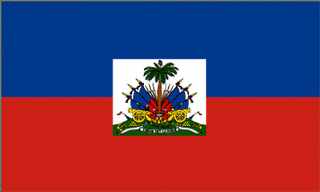OLAF and Europol strengthen cooperation in combating financial crime
Published:
9 April 2004 y., Friday
OLAF - The European Anti-fraud Office - and Europol - the European Police Office - shall sign an administrative arrangement putting in place the modalities for their practical co-operation.
Mr Jürgen Storbeck, Europol's Director and Mr Franz-Hermann Brüner, Director General of OLAF shall tomorrow, in Brussels, sign an administrative arrangement regarding co-operation between Europol and OLAF in order to fight fraud, corruption or any other criminal offence or illegal activity in the framework of international organised crime affecting the European Community's financial interests.
In order to step up the fight against fraud, corruption and any other illegal activity affecting the financial interests of the European Community, the European Anti-Fraud Office established by Commission Decision 1999/352/EC, ECSC, Euratom exercises the powers of investigation conferred on the Commission by the Community rules and Regulations and agreements in force in those areas.
The Office provides the Member States with assistance from the Commission in organising close and regular cooperation between their competent authorities in order to coordinate their activities for the purpose of protecting the European Community's financial interests against fraud.
The Treaty of the European Union mentions (art. 29 and 30) Europol as an important instrument of the Union's efforts to prevent and fight against organised crime in order to achieve the objective of providing its citizens with a high level of safety within an area of freedom, security and justice. Europol aims to improve the effectiveness and co operation between the competent authorities of the Member States in preventing and combating serious international organised crime. The mission of Europol is to make a significant contribution to the European Union's law enforcement action against organised crime, with an emphasis on targeting criminal organisations.
Based in The Hague, The Netherlands, Europol started limited operations on 3 January 1994 in the form of the Europol Drugs Unit (EDU) fighting against drugs. The Europol Convention was ratified by all Member States and came into force on 1 October 1998. Following a number of legal acts related to the Convention, Europol commenced its full activities on 1 July 1999.
Šaltinis:
europa.eu.int
Copying, publishing, announcing any information from the News.lt portal without written permission of News.lt editorial office is prohibited.
The most popular articles
 In its first meeting in 2010, the Gas Coordination Group, under the chairmanship of the Commission, has focused today on the assessment of the situation on security of gas supply in the EU-27 and countries of the Energy Community and discussed priorities for the work of the Group in 2010.
more »
In its first meeting in 2010, the Gas Coordination Group, under the chairmanship of the Commission, has focused today on the assessment of the situation on security of gas supply in the EU-27 and countries of the Energy Community and discussed priorities for the work of the Group in 2010.
more »
 Luc Van den Brande, President of the EU Committee of the Regions (CoR), has used his first meeting with the President of the European Council, Herman Van Rompuy, to underline the importance of consultation between local, regional and national authorities.
more »
Luc Van den Brande, President of the EU Committee of the Regions (CoR), has used his first meeting with the President of the European Council, Herman Van Rompuy, to underline the importance of consultation between local, regional and national authorities.
more »
 Basile Nkwesi, Directeur Commercial of Multiprint, speaks for dozens of frustrated business managers in this busy enterprise center when he talks about Cameroon’s costly and unreliable electricity.
more »
Basile Nkwesi, Directeur Commercial of Multiprint, speaks for dozens of frustrated business managers in this busy enterprise center when he talks about Cameroon’s costly and unreliable electricity.
more »
 During 2009, over 2400 new corporate clients, whose total number currently exceeds 16 thousand, began using Bank SNORAS services.
more »
During 2009, over 2400 new corporate clients, whose total number currently exceeds 16 thousand, began using Bank SNORAS services.
more »
 In 2009, the European Investment Bank (EIB) provided EUR 2.5 billion in 16 credit lines for financing the investment projects of SMEs (EUR 1 955 million) and local authorities (545 million) in Spain.
more »
In 2009, the European Investment Bank (EIB) provided EUR 2.5 billion in 16 credit lines for financing the investment projects of SMEs (EUR 1 955 million) and local authorities (545 million) in Spain.
more »
 In 2009, the number of counterfeit euro coins removed from circulation was 172 100, down from 195 900 the year before.
more »
In 2009, the number of counterfeit euro coins removed from circulation was 172 100, down from 195 900 the year before.
more »
 Haiti began participating in the International Monetary Fund’s General Data Dissemination System on December 28, 2009, marking a major step forward in the development of its statistical system.
more »
Haiti began participating in the International Monetary Fund’s General Data Dissemination System on December 28, 2009, marking a major step forward in the development of its statistical system.
more »
 According to the data of NASDAQ OMX Vilnius Stock Exchange, the price of Bank SNORAS registered ordinary shares grew by more than 2.5 times.
more »
According to the data of NASDAQ OMX Vilnius Stock Exchange, the price of Bank SNORAS registered ordinary shares grew by more than 2.5 times.
more »
 The European Commission has cleared under the EU Merger Regulation the proposed acquisition of Cadbury PLC of the UK by Kraft Foods Inc. of the US by way of public offer.
more »
The European Commission has cleared under the EU Merger Regulation the proposed acquisition of Cadbury PLC of the UK by Kraft Foods Inc. of the US by way of public offer.
more »
 Statistics Lithuania informs that construction input prices inNovember 2009, against October, dropped by 0.5 percent.
more »
Statistics Lithuania informs that construction input prices inNovember 2009, against October, dropped by 0.5 percent.
more »